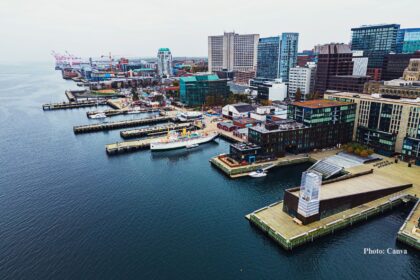Choosing where to live is one of the most important decisions you’ll make in your life. Whether you’re looking for a change of scenery, better job opportunities, or a more affordable cost of living, the United States offers a diverse range of cities and regions to call home. In this comprehensive guide, we’ll explore 7 outstanding options for relocation, each with its unique charm and advantages.
1. Austin, Texas: The Live Music Capital of the World

Why Austin?
Austin has been a relocation hotspot for years, and for good reason. This vibrant capital city offers a perfect blend of economic opportunities, cultural richness, and a laid-back lifestyle that appeals to many.
Key Highlights:
- Thriving job market: Austin is a tech hub, home to major companies like Dell, IBM, and Apple, as well as numerous startups.
- No state income tax: Texas is one of the few states without income tax, potentially leaving more money in your pocket.
- Vibrant culture: Known for its live music scene, food trucks, and outdoor activities, Austin offers endless entertainment options.
- Education: Home to the University of Texas, Austin provides excellent educational opportunities.
Considerations:
- Growing pains: Austin’s popularity has led to increased traffic and rising housing costs.
- Hot summers: Be prepared for temperatures that can soar above 100°F (38°C) in the summer months.
According to the U.S. Census Bureau, Austin’s population grew by 21.7% between 2010 and 2020, making it one of the fastest-growing large cities in the country.
2. Raleigh, North Carolina: The City of Oaks

Why Raleigh?
Raleigh, part of the Research Triangle along with Durham and Chapel Hill, offers a perfect blend of Southern charm and modern opportunities.
Key Highlights:
- Education and research: Home to North Carolina State University and close to Duke and UNC-Chapel Hill, Raleigh is an intellectual powerhouse.
- Job opportunities: The Research Triangle Park hosts numerous tech and biotech companies, providing ample career options.
- Quality of life: With its moderate climate, numerous parks, and family-friendly atmosphere, Raleigh consistently ranks high in livability surveys.
- Cost of living: While not the cheapest option, Raleigh offers good value compared to many other major cities.
Considerations:
- Public transportation: While improving, Raleigh’s public transit system isn’t as comprehensive as some larger cities.
- Allergies: The area’s abundant greenery can be challenging for allergy sufferers.
Raleigh’s median home price in 2021 was $340,303, according to Zillow, making it more affordable than many other growing tech hubs.
3. Denver, Colorado: The Mile High City

Why Denver?
For those who love the outdoors and want to maintain a career in a major city, Denver offers an unbeatable combination.
Key Highlights:
- Outdoor paradise: With the Rocky Mountains in your backyard, Denver offers year-round outdoor activities from skiing to hiking.
- Booming economy: Denver’s job market is diverse, with strong sectors in aerospace, telecommunications, and energy.
- 300 days of sunshine: The city’s climate is surprisingly mild, with plenty of sunny days throughout the year.
- Cultural scene: From museums to craft breweries, Denver has a rich and varied cultural offering.
Considerations:
- altitude adjustment: At 5,280 feet above sea level, some people may need time to acclimate to the altitude.
- Housing costs: Denver’s popularity has driven up housing prices in recent years.
Denver’s population grew by 19.2% between 2010 and 2020, according to the U.S. Census Bureau, reflecting its increasing appeal.
READ ALSO: 10 Must-Try Things to Do in Nashville – City Guide
4. Nashville, Tennessee: Music City USA

Why Nashville?
Nashville isn’t just for country music fans. This dynamic city offers a unique blend of Southern hospitality, creative energy, and economic opportunities.
Key Highlights:
- Music and entertainment: Beyond country, Nashville’s music scene spans all genres, and the city is also becoming a major TV and film production center.
- Food scene: From hot chicken to high-end restaurants, Nashville’s culinary offerings are diverse and delicious.
- No state income tax: Like Texas, Tennessee doesn’t have a state income tax.
- Healthcare industry: Nashville is a major healthcare industry hub, offering numerous job opportunities in this sector.
Considerations:
- Tourism: Popular areas can get crowded, especially during peak seasons and events.
- Weather: Nashville can experience severe weather, including tornadoes, particularly in spring.
According to the Nashville Area Chamber of Commerce, the city added an average of 83 new residents per day in 2019, showcasing its rapid growth.
5. Boise, Idaho: The City of Trees

Why Boise?
Boise might not be the first city that comes to mind when considering relocation, but this hidden gem offers a high quality of life and growing opportunities.
Key Highlights:
- Outdoor recreation: With easy access to mountains, rivers, and lakes, Boise is perfect for outdoor enthusiasts.
- Growing tech scene: Companies like Micron Technology and HP have a significant presence, and the startup ecosystem is thriving.
- Affordable living: While prices are rising, Boise remains more affordable than many West Coast cities.
- Safety: Boise consistently ranks as one of the safest cities in the country.
Considerations:
- Limited public transportation: Like many smaller cities, Boise’s public transit system is not as developed as larger metropolitan areas.
- Four distinct seasons: While many enjoy this, be prepared for cold winters and hot summers.
Boise’s population grew by 14.6% between 2010 and 2020, according to the U.S. Census Bureau, indicating its increasing popularity.
6. Charleston, South Carolina: The Holy City

Why Charleston?
With its rich history, beautiful beaches, and Southern charm, Charleston offers a unique living experience that’s hard to match.
Key Highlights:
- Historical significance: Charleston’s well-preserved architecture and historical sites offer a glimpse into America’s past.
- Beaches: Beautiful beaches are just a short drive away, perfect for weekend getaways.
- Culinary scene: Charleston is renowned for its food scene, blending traditional Southern cuisine with innovative new restaurants.
- Growing economy: While tourism is a major industry, Charleston’s economy is diversifying, with growing tech and manufacturing sectors.
Considerations:
- Hurricane risk: Being on the coast, Charleston can be vulnerable to hurricanes and tropical storms.
- Tourism: The city’s popularity with tourists can lead to crowded areas, especially in the historic downtown.
Charleston’s economy grew by 21.6% between 2014 and 2019, according to the Charleston Regional Development Alliance, outpacing both state and national averages.
7. Portland, Oregon: The City of Roses

Why Portland?
Known for its eco-friendliness, vibrant culture, and proximity to stunning natural beauty, Portland offers a unique West Coast living experience.
Key Highlights:
- Sustainability: Portland is a leader in green living, with excellent public transportation, bike lanes, and a strong focus on sustainability.
- Food and drink: From food carts to craft breweries, Portland’s culinary scene is diverse and innovative.
- Outdoor access: With the Pacific Ocean, Mount Hood, and numerous forests nearby, outdoor activities abound.
- No sales tax: Oregon is one of five states with no sales tax, which can lead to savings on purchases.
Considerations:
- Weather: Portland experiences a lot of rain, particularly from October to May.
- Cost of living: While more affordable than Seattle or San Francisco, Portland’s housing costs have risen significantly in recent years.
According to the U.S. News & World Report’s 2021-2022 Best Places to Live rankings, Portland ranked #10 out of 150 metro areas in the United States.
Conclusion
Choosing where to relocate is a deeply personal decision that depends on numerous factors including career goals, lifestyle preferences, and budget. Each of these seven cities offers unique advantages and potential challenges.
When considering relocation, it’s important to:
- Research thoroughly: Look beyond just job opportunities and housing costs. Consider factors like climate, culture, and long-term growth prospects.
- Visit if possible: Nothing beats firsthand experience. Try to spend time in your potential new home before making a final decision.
- Consider your long-term goals: Think about where you want to be in 5, 10, or even 20 years. Does the city align with these goals?
- Network: Reach out to people who live in the area. Their insights can be invaluable in making your decision.
Remember, there’s no perfect city that will tick every box for everyone. The key is to find a place that aligns with your priorities and offers opportunities for growth and happiness.
We hope this guide has given you some inspiration and helpful insights to consider for your potential big move.Your perfect place is somewhere out there, tailored just for you.
In another related article, The Best Pizza Spots in Portland: A Slice of Heaven






